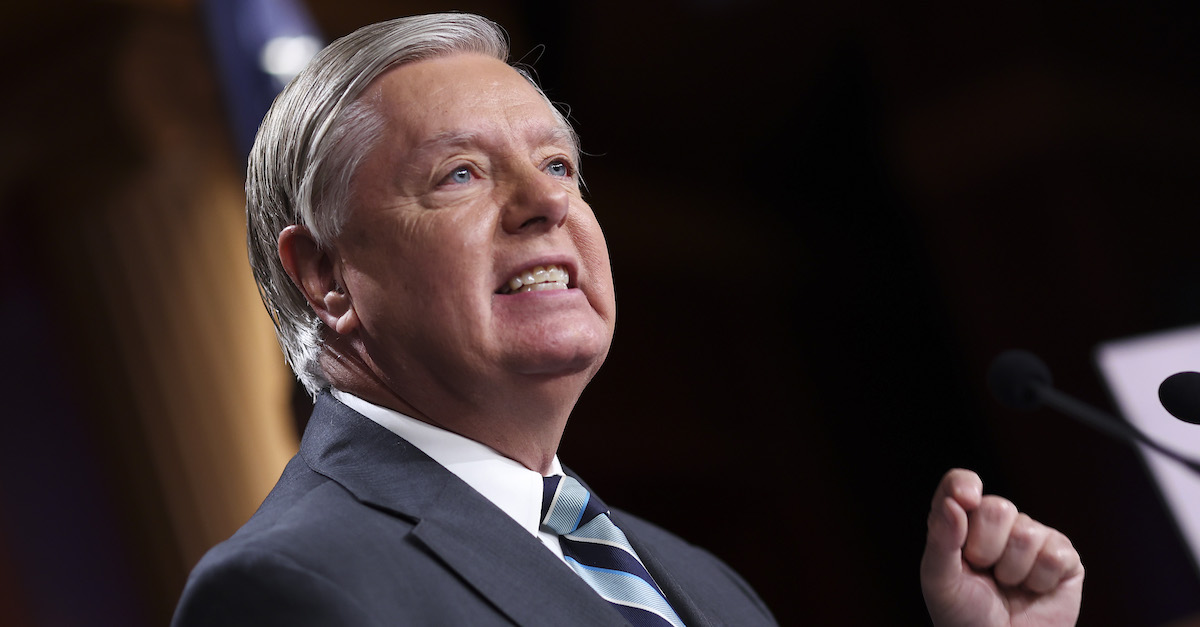
U.S. Sen. Lindsey Graham
A three-judge panel on the U.S. Court of Appeals for the 11th Circuit rejected Sen. Lindsey Graham’s (R-S.C.) bid to block a subpoena to testify in Fulton County DA Fani Willis’ (D) investigation into efforts to interfere with the 2020 election.
After Sen. Graham had argued that questioning him about post-election calls with Georgia officials would have been “unconstitutional,” Willis urged the 11th Circuit not to render Graham a “super-citizen” by letting him hide behind the Speech or Debate Clause.
Georgia investigators have said they seek to question Graham about phone calls he had with Georgia election officials in late 2020, around the same time that former President Donald Trump’s infamous “find 11,780 votes” call with Georgia Secretary of State Brad Raffensperger (R) took place. Graham reportedly made at least two calls to Raffensperger and members of his staff in the weeks immediately after the election.
The panel, composed of two Trump appointees (U.S. Circuit Judges Kevin Newsom and Britt Grant) and one Bill Clinton appointee (and U.S. Circuit Judge Charles Wilson) already tipped its hand as to Graham’s absolute immunity argument. On Thursday, the judges were in agreement that Graham had “failed to demonstrate” that the lower court’s “partial quashal” approach would “violate his rights.”
“Should there be a dispute over whether a given question about Senator Graham’s phone calls asks about investigatory conduct, the Senator may raise those issues at that time,” the 11th Circuit said. “We also agree that the three enumerated categories set out by the district court could not qualify as legislative activities under any understanding of Supreme Court precedent. We thus find it unlikely that questions about them would violate the Speech and Debate Clause.”
The court recounted the lower court’s ruling in favor of Graham testifying as follows:
The district court adopted the more protective view, that the Speech and Debate Clause can shield informal legislative investigations. It included within that category any factfinding inquiries in Senator Graham’s phone calls to Georgia election officials relating to his decision “to certify the results of the 2020 presidential election.” The court quashed the subpoena to the extent that it covered that sort of investigation. But it held that targeted questions about non-investigatory conduct by Senator Graham could proceed. It reasoned that any non-investigatory conduct covered by the subpoena was not protected by the Clause, and that there was genuine dispute about whether Senator Graham’s phone calls with Georgia election officials were investigatory. The court also reasoned that three topics unrelated to the phone calls—communications and coordination with the Trump campaign regarding its post-election efforts in Georgia, public statements regarding the 2020 election, and efforts to “cajole” or “exhort” Georgia election officials—were not legislative activities. And the court noted that Senator Graham may still seek to assert his Speech and Debate Clause privilege if there is a dispute about whether a concrete question implicates his factfinding relating to certification.
In finding against Graham, the 11th Circuit lifted a stay of the district court’s order, which means the case will go to the Superior Court of Fulton County “for further proceedings.”
Read the brief six-page order here.
[Image via Kevin Dietsch/Getty Images]